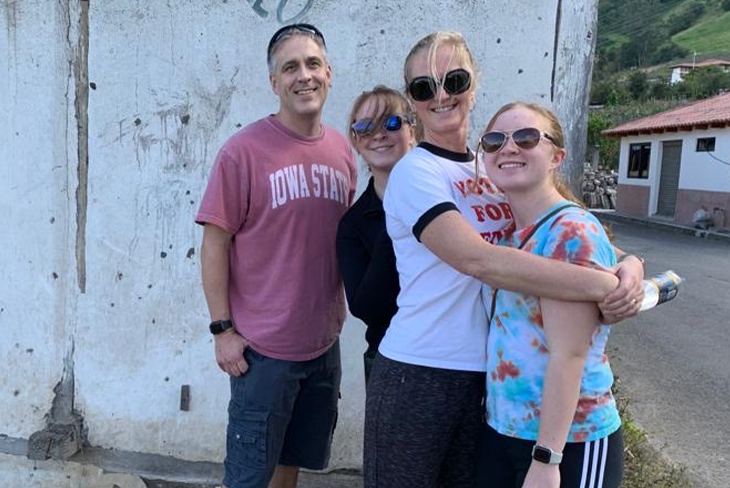Show Menu
Choose Your Location
You are now leaving the Viatris page for a Viatris affiliate site or third party site that is solely responsible for its content, including its compliance with guidelines applicable in certain geographies. Links to Viatris affiliate sites and third party sites are provided as a resource to our visitors and may not be governed by the same regulatory requirements applicable to this site and unaffiliated third party sites are subject to their own terms and data protection notices and practices. Moreover, if their third party site is subject to other country laws, regulatory requirements, data protection requirements or medical practices may differ between countries and the information provided therein may not be suitable for use in your country.

Voices of Viatris
January 30, 2023
By: Niki Kapsambelis
 |
For Jade Benoit, the new year is all about fresh starts: so much so that she literally leaves the past year, both its good and bad moments, in ashes.
It’s a tradition she learned when she lived in Cotaló, Ecuador, while serving with the Peace Corps. Members of the community write down the events of the previous year – sort of a last will and testament – and set it on fire, along with an effigy of the people of that year, which is a means of honoring them. The idea is to welcome what’s ahead with a fresh perspective.
“Ecuador is always saying goodbye,” said Jade, who is Viatris’ head of marketing for Latin America.
Every year, she and her husband – and later, their two daughters, who are now 18 and 20 -- return to Cotaló for New Year’s Eve. During the COVID-19 pandemic, when travel was impossible, they observed the tradition at home using a little doll-sized effigy. This past Dec. 31, they returned for the first time in three years.
It’s worth noting that the ash produced by fire promotes new growth, something Jade witnessed in dramatic fashion while still living in Ecuador. The village where she lived, Cotaló, sits in sight of an active volcano, Tungurahua (which translates to “Throat of Fire” in the Quechua Indian language). In 1999, it erupted, forcing the evacuation of the entire community during the December holidays.
The eruption spewed ash on everything, instantly rusting the gate outside Jade’s home and killing plants as rocks flowed down the sides of the volcano. “It was a bit like a Christmas tree,” she recalled.
Though the Peace Corps offered to relocate Jade and her husband, they wanted to stay with their community during the crisis. So they sheltered along with the rest of the village for four months in a machine shed. They made the most of it by hanging lights and Christmas stockings.
Jade returned to her native United States in the summer of 2000. She joined the company as a sales representative in January 2001, enticed by the prospect of combining science and business, both of which she loves. In the 22 years since, she has moved through several roles and locations, including strategy, analytics and operations before landing in her current job, which allows her to travel throughout Latin America.
“I’m a bit of a nomad,” she said. “If there’s something to learn, and a way to go, and good people, I love it.”
Visiting the countries where her team works allows her to do her job better, she believes.
Once, when Jade was in Ecuador, a native advised her not to swim at a particular beach, telling her the water was “bad.” Thinking the warning was merely a superstition, she plunged in, only to discover herself in the middle of a school of jellyfish.
She quickly learned a valuable lesson: “I needed to listen and learn. I heard the words, but I didn’t understand the meaning. That was so ethnocentric of me.”
That mindset has served her well on the job: “There are always times when we are assuming ourselves to have an answer – but it’s an assumption, not a fact. And we need to go back and learn: is this true? Is this not true?”
As an example, she cites a goal of helping patients with diabetes get an early diagnosis. She learned that people in Latin American cultures are more likely to go to the doctor if they know in advance that a solution is available; without that knowledge, some will not seek a diagnosis. Understanding that mindset allows her to better reach patients by approaching them with the information about a solution up front.
“Business is about the business, of course, but there’s an element of culture that permeates the perspective,” she said. “My job is to ensure that I continue to grow.”